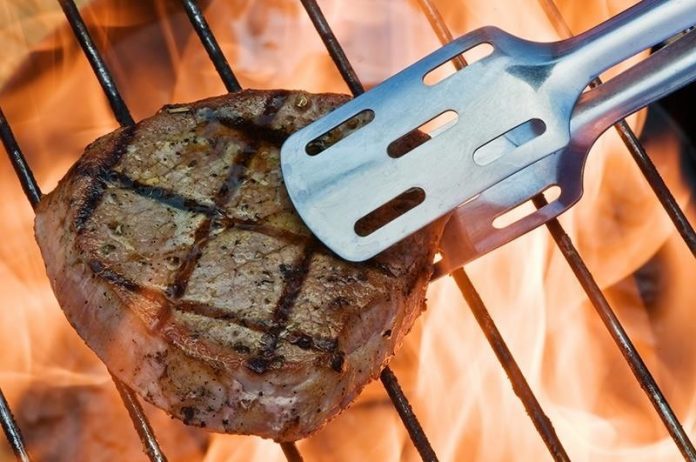After a particularly harsh winter, the snow has finally melted from the backyard grill. It’s time to start cooking outside again.
Unfortunately, with barbecued meats come increased risks from cancer-causing compounds. But there’s good news from Portuguese researchers. They’ve found that marinating meat in dark beer substantially reduces the formation of potentially harmful substances.
Here’s the problem. Past studies have shown an association between colorectal cancer and eating grilled meat.
When meats like beef, pork, chicken or fish are cooked at very high temperatures (like on a barbecue grill) they form polycyclic aromatic hydrocarbons (PAHs). PAHs form when fat and meat juices drip onto an open fire, causing flames. The flames contain PAHs that stick to the surface of the meat. PAHs can also be formed by smoking meats
High levels of PAHs are also found in cigarette smoke and car exhaust. In laboratory studies PAHs are associated with cancers in animals. It’s still uncertain if the same is true for humans. But the European Union Commission has set maximum PAH levels in foods.
Prior research established that marinating meats in beer, wine, or tea before grilling them can reduce the levels of these potential carcinogens. But it wasn’t clear what kind of beer was best.
For this study the researchers used marinated and unmarinated pork. The meat all contained the eight major PAHs that have been classified as indicators of carcinogenic potency.
They marinated the pork for four hours in Pilsner beer, non-alcoholic Pilsner beer or black beer ale. Then they cooked the pork until well-done on a charcoal grill.
Their results were published in the Journal of Agricultural and Food Chemistry. Black beer had the strongest effect. It reduced the levels of the eight major PAHs by more than half (53%) compared with unmarinated pork.
Non-alcoholic Pilsner reduced PAHs by 25% and regular Pilsner by 13%. It’s not clear why non-alcoholic Pilsner was more powerful than the regular.
Other potentially carcinogenic compounds formed during meat grilling include heterocyclic amines (HCAs). They are produced when animal muscle, such as beef, chicken, pork or fish, is barbecued, grilled, boiled or fried.
Consuming HCAs through meat increases risk factors for colorectal, stomach, lung, pancreatic, mammary and prostate cancers.
Prior research found that adding certain spices containing natural antioxidants to meats or marinades could reduce HCAs by 40%. Meat cooked below 352 degrees Fahrenheit for less than four minutes contains low or undetectable levels of HCAs. Levels increase with higher temperatures and longer cooking times.
Researchers believe antioxidants in spices with phenolic compounds can block HCAs before they form during heating and grilling at high temperatures. Rosemary and turmeric are particularly effective.
Combining spices with marinades is a good practice.
Earlier research found that even store-bought marinades significantly reduce total HCAs. Steak cooked in a Caribbean marinade containing thyme, red and black pepper, allspice, rosemary, and chives reduced HCAs by 88%; an herb marinade with oregano, basil, onion, jalapeno, parsley, and red pepper reduced them by more than 72%; and a Southwest marinade containing paprika, red pepper, oregano, black pepper, garlic, and onion reduced HCAs by 57%.
Better yet, make your own dark beer marinade. Here’s how.
Dark Beer Marinade Recipe
1/2 cup extra virgin olive oil
1 cup Guinness or other stout
1/2 cup lemon juice
6 cloves garlic, chopped
2 teaspoons Celtic sea salt
1 teaspoon freshly ground black pepper
1 teaspoon dry mustard
1 teaspoon turmeric
2 teaspoons dried rosemary
1 bay leaf
Combine all ingredients. Add chicken, beef, pork or other meat and marinate at least one hour.















